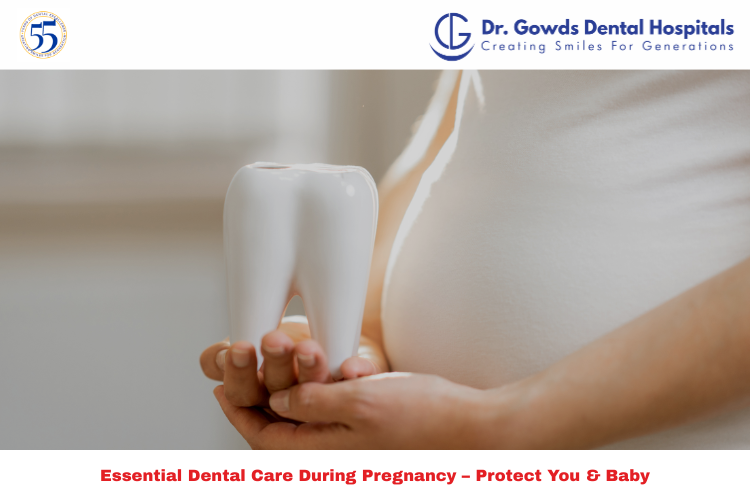Schedule Appointment



Pregnancy is one of the most beautiful and life-altering periods in a woman’s life. Between prenatal appointments, food cravings and that whole thing about looking forward to meeting your new baby, dental care during pregnancy might not be uppermost in your mind. But did you know that looking after your oral health isn’t just good for you – it’s good for your baby as well? Whether it’s lowering the chance of preterm labor or preventing gum disease, taking care of your teeth during pregnancy can pay off big time.
Hormonal fluctuations, diet changes, and morning sickness can affect your teeth and gums, and contribute to dental problems. Higher amounts of progesterone and estrogen mean your gums are more susceptible to plaque, which in turn heightens your risk for inflammation and infections.
A number of studies have demonstrated associations between poor dental care during pregnancy and issues such as:
Bacteria from untreated gum infection can get into the bloodstream and travel to the uterus, possibly triggering premature labor. Which is why, the first time you visit your obstetrician while pregnant, you should expect to also receive a referral for a dental check-up.
The hormonal fluctuations of pregnancy can make your gums more susceptible to gingivitis.
Gingivitis affects from 25% to 75% of women when pregnant. Disregarding it can result in severe gum disease.
Pregnant women are more vulnerable since:
Cavities can transmit bad bacteria to the baby, which lead to an increased chance of childhood tooth decay.
Benign mouth tumors can be seen on the gums, typically during the second trimester. They typically go away after delivery but some may need to be removed.
Your teeth are at risk of enamel erosion and increased sensitivity when you vomit due to morning sickness.
Your hormones may influence the ligaments and bones holding your teeth in place, which can feel loose.
Dental visits greater than every 6 months are important, particularly during pregnancy. Tell your dentist you’re pregnant or trying to become pregnant.
Request mercury-free composite resin if you need a filling. Mercury used in silver (amalgam) fillings can damage your baby’s brain, kidneys and other organs.
Choose foods rich in:
These vitamins and minerals help baby’s teeth and bones grow and develop. Stay away from sweet, sticky snacks and drinks that feed the bacteria and cause decay.
Receiving a dental cleaning when pregnant is not only safe but it is recommended. Regular cleanings can also help stave off gingivitis and other problems.
Is it not a good idea to brush immediately after vomiting? Rinse your mouth with a solution of water and baking soda instead. Wait 30 minutes… at least… before brushing, even 60 to avoid eroding away the enamel.
Dental X-rays can be done safely during pregnancy with some precautions. If you need to have an X-ray taken during your pregnancy, your dentist will shield your body (and your baby) with a lead apron and thyroid collar. Tell your dentist you are pregnant or planning a baby if you need any procedure.
If you notice any of the following, call your dentist immediately:
Unaddressed infections can rapidly worsen and affect both the mother’s and the baby’s health.
When to Get Dental Treatments While Pregnant
If a dental emergency occurs, you can have the condition treated at any time during pregnancy using safe medications and local anesthesia.
Smoking is harmful to gums and teeth and increases the risk of preterm birth. Need help quitting? Call 1-800-QUIT-NOW or go to smokefree.gov.
Some pregnant women have a craving for non-food items, such as dirt, ice or chalk. This condition, known as pica, can be hard on your teeth. If this occurs, consult with your healthcare provider immediately.
Taking good care of your oral health while you’re pregnant is not just for you—it’s for your baby, too. Proper dental care during pregnancy can reduce the risk of pregnancy-related complications and give your child a healthier start in life. It’s time to add dental health to the top of your prenatal to-do list.
Visit us at–
Yes, cleanings are safe and advised during pregnancy.
A root canal can be done with local anaesthesia while you are pregnant without harming your baby.
At least every six months, and more if you have issues.
Check with your OB-GYN before you take any type of medication, including OTC medications.
Use fluoride toothpaste that carries the American Dental Association (ADA) seal of acceptance.